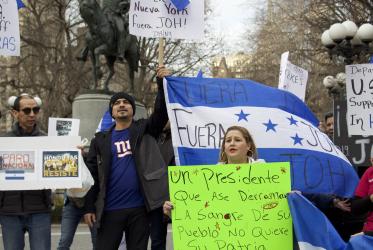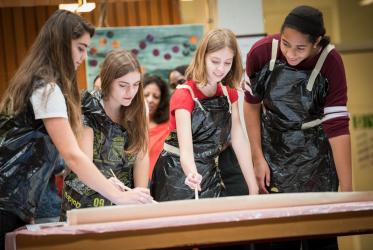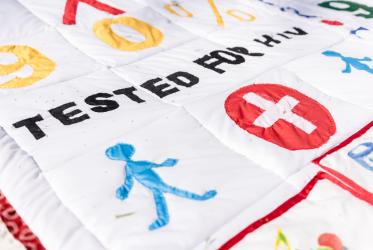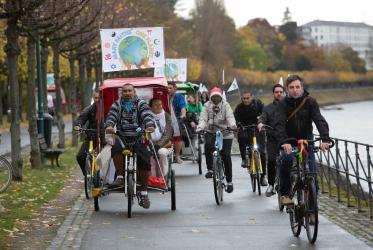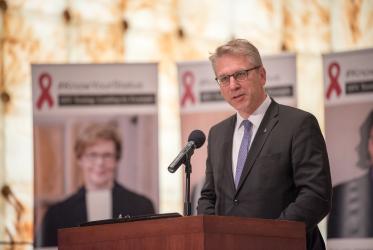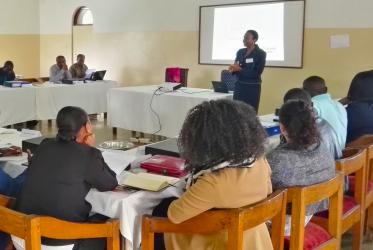Displaying 141 - 160 of 379
21 March 2018
Not just numbers, displaced people need to share their stories
01 February 2018
Churches in France encourage ecological conversion
24 January 2018
Conversation on HIV “must continue,” Faith Networking Zone shows
07 December 2017
Global church leaders urge COP23 to take action
13 November 2017
Re-engineering life forms: Church forum raises concerns
09 November 2017
WCC appoints new representative to the UN
27 October 2017
Forum strengthens ecumenical commitment to diakonia
12 October 2017
“Good healthcare a right, not a privilege,” says WCC-EAA
11 October 2017
Former director of the WCC Programme on Theological Education has died
29 September 2017
Faith on the fast-track - for children living with HIV
13 September 2017
“It will take faith to get down to business, to overcome HIV and AIDS”
13 September 2017
Seminar explores how populist rhetoric leads to racism
07 September 2017
African youth takes stand at first ever WCC Eco-School
03 August 2017

